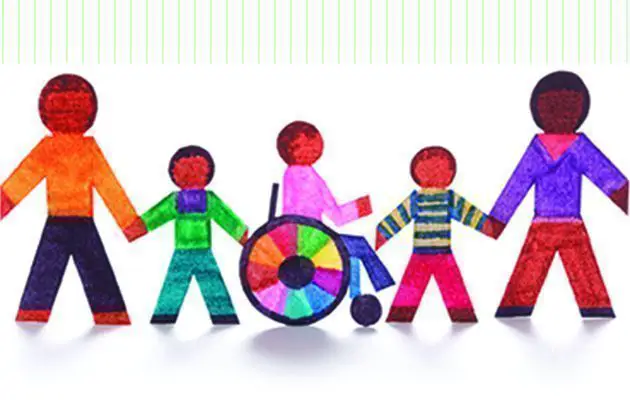Gloria Corsino, mother of two boys on the autism spectrum and parent member and president of District 75 Community Education council, gives her top 10 tips on advocating for her children with disabilities to ensure a better tomorrow.
1. I have made it a habit to carry my children’s IEPs on a flash drive. I can easily pull the document up on any computer, at any time. Carry it on your key chain for convenience, or get a credit-card-shaped one to store in your wallet.
I also store a digital copy of the IEP in a drop box account set up specifically to store any documents pertaining to my children’s education. Google Docs is a popular option, and it’s easy to create an account: Go to docs.google.com to register an email and get started; it’s free.
Having such ready access to your child’s IEP (or other relevant legal papers) will expedite requests when you are not able to provide someone with an immediate hard copy of those documents.
2. I have always thought not just of tomorrow, but of the tomorrows of a decade ahead. Where will my children be? Where do I want them to be? I have set timelines of what I want to accomplish for them before they turn 21, such as: By the age of 15, I should have a meeting with the transition coordinator so that we can start putting into place the programs that will enhance my sons’ abilities and that will enable each of them to be as independent as is possible while still being a part of society. By 17, I should be inquiring about guardianship (at 18 our children will be considered legal adults even if they are not cognitive enough to make decisions about medical issues or financial decisions).
3. If our children were not born with a disability, we would encourage independence in them, so why should this be any different because they were? Our job is to make them independent of us, in my opinion. By the time they are 19 we should have already visited residentials, and as soon thereafter as makes sense for your family, they should be on at least one waiting list (for those of us who are ready; remember, though, that pushing through your own discomfort with envisioning your child apart from you is important to his welfare). Waiting lists for residential facilities are inevitably long (in the Bronx, for instance, the estimated wait time is about five years). Visit various facilities to get a sense of what you feel might be a good fit for your child—you would never place your loved one someplace you haven’t seen, after all.
4. Always show faith in their abilities, and don’t emphasize their disability. If we don’t believe in them, they will have no reason to believe in themselves.
5. Nurture the caretaker; we are, after all, only human.
6. Share ideas that work for you with other parents of children with disabilities. You might get an idea you had not thought of, and in time you will be surprised at the wealth of experience—and wisdom—you yourself have amassed.
7. Send a congratulatory note to your local elected officials when they take office. Tell them one thing you look forward to them addressing in their respective terms that relates to your child’s or your family’s special needs. Such an acknowledgement lets them know that you as a constituent are invested in their performance, and that they can expect you to reach out if a need were to arise.
8. Go to your local firehouse and precinct; give them a little history of who your child is with a picture of him or her. Emergencies happen, and if they are aware they will be prepared to help our loved ones with care and compassion.
In my personal case, my sons’ diagnosis made it likely that, should an emergency ever present itself, the boys would be resistant to help from first responders because they were not familiar, and they would have a difficult time processing the danger of the situation. The fire chief was receptive to my effort to communicate helpful information, and my comfort level within the community increased.
9. Build your own DNA kit for your child. We must always be prepared. See How to Build a DNA Kit for Your Child for detailed information about creating a DNA kit, how to keep it current, and who should have access.
10. Build a manual on your child; it should include age of diagnosis and process of education, such as early intervention, preschool, school age, class size, related services received, etc. Include medical conditions and prescription drugs taken by your child, including frequency of medication and dosage.
Does this feel a little too corporate, or unachievable in your already frenzied life? Take heart: You can begin by keeping all your child’s paperwork in a big box, and then spend time here and there sorting through it. Ask your partner, a supportive friend, or a family member to help—you’ll appreciate the companionship and assistance, and moreover, you’ll be more likely to keep your commitment if another person is setting aside time.
I opted for a binder with important documents kept safe and accessible in plastic sleeves at the front, but you should choose any means of presentation that works most effectively (and easily) for you.
The work you put into organization on the back end will save you time—and loads of frustation—in countless scenarios on the front end, trust me.





















